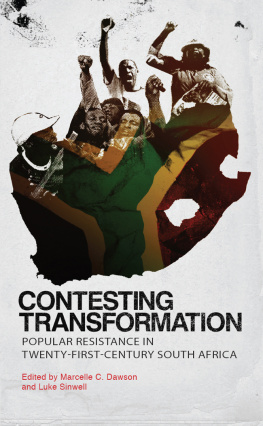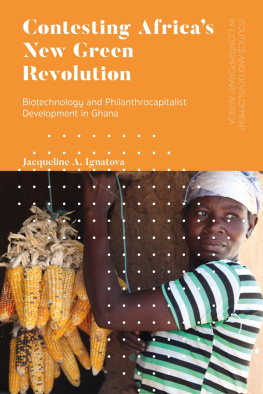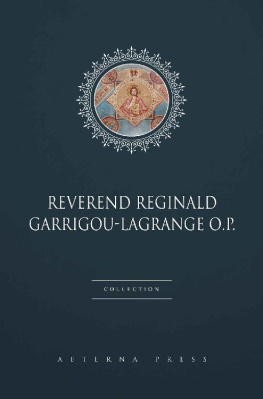CONTESTING FORESTRY IN WEST AFRICA
The Making of Modern Africa
Series Editors: Abebe Zegeye and John Higginson
Regional and Local Development in South Africa
The experience of the Eastern Cape
Etienne Louis Nel
Agrarian Economy, State and Society in Contemporary Tanzania
Edited by Peter G. Forster and Sam Maghimbi
Entrepreneurial Ethics and Trust
Cultural foundations and networks in the Nigerian plastic industry
Yakubu Zakaria
Growth or Stagnation? South Africa heading for the year 2000
Mats Lundahl
Sudan's Predicament
Civil war, displacement and ecological degradation
Edited by Girma Kebbede
Doctors and the State
The struggle for professional control in Zimbabwe
Dorothy Mutizwa-Mangiza
Class Formation and Civil Society: The Politics of Education in Africa
Partick M. Boyle
The Social Services Crisis of the 199O's
Edited by Anna Kajumulo Tibaijuka
Oil and Fiscal Federalism in Nigeria
Augustine A. Ikein and Comfort Briggs-Anigboh
Environment, Health and Population Displacement
Andrew E. Collins
Contesting Forestry in West Africa
Edited by
Reginald Cline-Cole
University of Birmingham, UK
Clare Madge
Leicester University, UK
First published 2000 by Ashgate Publishing
Reissued 2018 by Routledge
2 Park Square, Milton Park, Abingdon, Oxon OX14 4RN
711 Third Avenue, New York, NY 10017, USA
Routledge is an imprint of the Taylor & Francis Group, an informa business
Copyright Reginald Cline-Cole and Clare Madge 2000
All rights reserved. No part of this book may be reprinted or reproduced or utilised in any form or by any electronic, mechanical, or other means, now known or hereafter invented, including photocopying and recording, or in any information storage or retrieval system, without permission in writing from the publishers.
Notice:
Product or corporate names may be trademarks or registered trademarks, and are used only for identification and explanation without intent to infringe.
Publishers Note
The publisher has gone to great lengths to ensure the quality of this reprint but points out that some imperfections in the original copies may be apparent.
Disclaimer
The publisher has made every effort to trace copyright holders and welcomes correspondence from those they have been unable to contact.
A Library of Congress record exists under LC control number: 00135273
ISBN 13: 978-1-138-74190-4 (hbk)
ISBN 13: 978-1-315-18223-0 (ebk)
Michael J. Alexander (Durham University, UK)
Kojo Sebastian Amanor (University of Ghana at Legon)
J.E. Michael Arnold (Independent Consultant)
Karin Barber (University of Birmingham, UK)
Thomas J. Bassett (University of Illinois, Urbana-Champaign, USA)
Jean Boutrais (OSTORM, France)
Reginald Cline-Cole (University of Birmingham, UK)
James Fairhead (University of London, UK)
Uwem E. Ite (Lancaster University, UK)
Peter J. Jarvis (University of Wolverhampton, UK)
Melissa Leach (University of Sussex, UK)
Tom McCaskie (University of Birmingham, UK)
Cheryl McEwan (University of Birmingham, UK)
Clare Madge (University of Leicester, UK)
Jesse C. Ribot (World Resources Institute, Washington, USA)
Kate Schreckenberg (Department for International Development, UK)
Rick Schroeder (Rutgers State University, USA)
Ken Swindell (University of Birmingham, UK)
David H.L.Thomas (Birdlife International, Cambridge, UK)
The origins of this book date back to discussions which took place during a workshop held at the University of Birmingham in April 1996. We would like to thank all the participants at that workshop for their support and enthusiasm. The workshop itself was generously and jointly funded by the ESRC (through a grant to ETC (UK)), the Royal Geographical Society with the Institute of British Geographers (RGS-IBG), the Developing Areas Research Group of the RGS-IBG and the University of Birmingham.
Throughout its long gestation period this book has benefited first and foremost from the patience and professionalism of chapter authors who were always surprisingly civil in responding to the changing (and no doubt sometimes unreasonable) demands of the editors (who, in their defence, were sometimes acting on suggestions from referees and readers). Financial and technical support for seeing the book through to publication came from the Universities of Leicester (Geography Department) and Birmingham (Centre of West African Studies), and ETC (UK). Phil O'Keefe of ETC (UK) has been particularly generous with his support and encouragement throughout and deserves a special mention of appreciation. Ruth Pollington provided invaluable cartographic skills at short notice; Isabelle lames and Margaret Moloney provided logistical and secretarial support. Pat FitzGerald handled the copy formatting and editing.
Last but by no means least we would like to thank our families (Tim and Rosie; Daphne and Camille) for their unfailing good humour and solid support throughout.
The Editors
Birmingham and Leicester
Part I
Introduction
REGINALD CLINE-COLE AND CLARE MADGE
Aims
If forests are essentially about trees, and forestry principally about people (Jarvis, this volume), then this is a book about forestry. It is informed by the firm belief that forestry is not a simple reflection of an unchanging biophysical reality (Hannigan, 1995). It is neither self-creating nor produced in a vacuum. Indeed, in West Africa, as elsewhere, forestry is constituted by individual practices, societal institutions, cultural beliefs and global-local environmental discourses, among other things. As editors, we believe this has three main implications. First, to conceive of forestry as constructed in this way is to deliberately disrupt its 'self-evidence' as a 'natural' entity or phenomenon (Braun and Castree, 1998). Second, it is to make it possible to recast forestry as a nexus of varied ideologies and practices which fluctuate over time and vary across space a nexus, that is, which is situated, both historically and geographically, as well as in lots of other ways. Third, it is to underscore the need for acknowledging the role of conflict, negotiation and dialogue in forestry's production to recognise, in other words, its contested nature. The eighteen contributions which make up this book aim, in the first instance, to demonstrate the value of these linked processes of construction, situation and contestation in producing a nuanced understanding of forestry in a multiplicity of contexts.
Our second main aim is no less important. Jack Westoby (1989) has argued a case for seeing forestry as both 'art' and 'science'. His suggestion that all forestry should be considered essentially social does not simply resonate with the notion of 'cultures' of forestry; it also appears to suggest that like other forms of forestry, scientific forestry is essentially a political science. We have used these insights as our starting point. For our part we understand forestry as complex, highly differentiated, dynamic and perpetually contested 'cultures' of resource management and use; cultures within which nature/society relations constitute an integral part of the continual (re-)making of landscape and society (Cline-Cole, 1998). The book, then, is about struggles over, between, and within these cultures. Contributors explore, in different ways and to varying degrees, the differentiated contexts and complicated processes of regional forestry-related 'negotiations'; the latter's material and non-material outcomes; and the intricate but fluid relations in which such 'negotiations' are embedded, and through which they are sustained.












